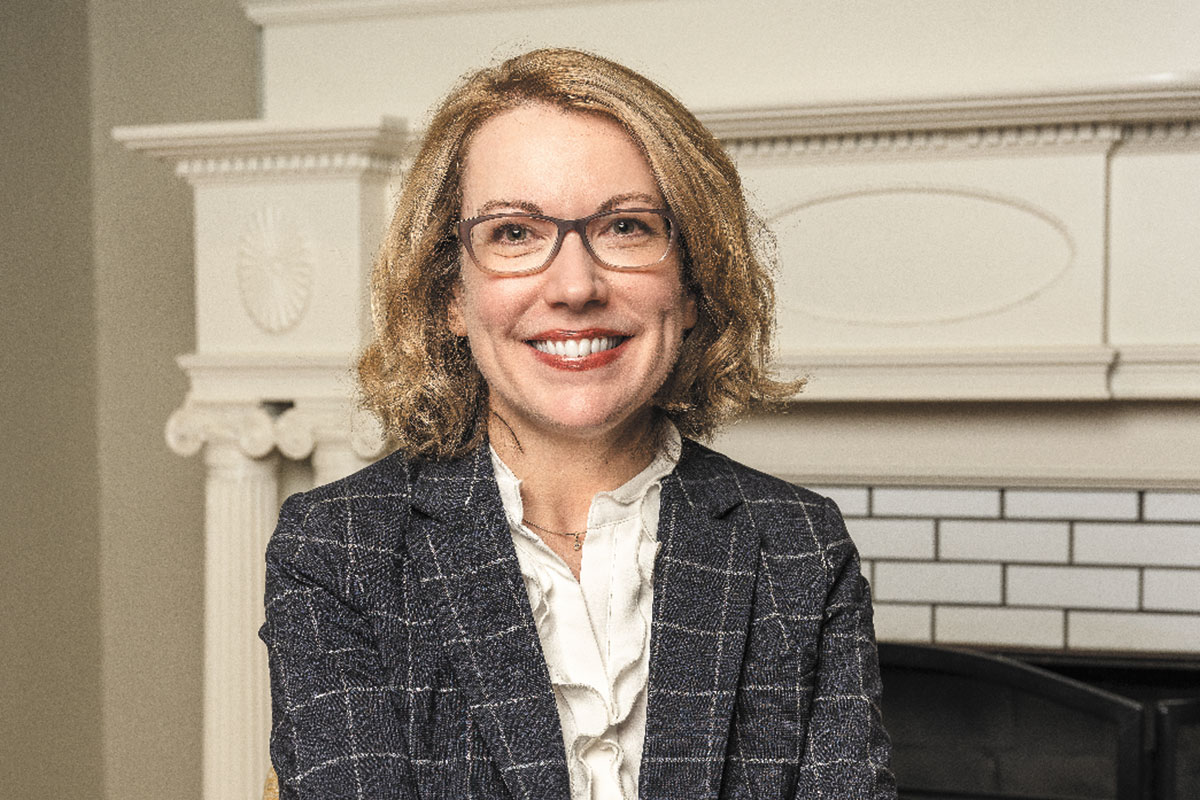Subscriber Benefit
As a subscriber you can listen to articles at work, in the car, or while you work out. Subscribe Now
Court of Appeals of Indiana
Indiana University Robert H. McKinney School of Law, 2001
Why did you decide to enter the legal profession?
Between college and law school, I worked in the criminal justice and social work fields for four years. I served as director of a sexual assault victim advocacy program, as community education coordinator for the Marion Police Department and Family Service Society, and at Hands of Hope’s domestic violence shelter. I also served as an intern, then investigator, at the Grant County Prosecutor’s Office. These positions all put me in the path of adults and children who had endured terrible trauma and needed help finding their voices. I decided to pursue a career in law so I could advocate for them in the courtroom as a prosecuting attorney. I’ll also admit that at that time I was (and still am) a fan of “Law & Order: SVU” and thought the
character of Alex was pretty cool.
Who is someone who has inspired you in your career?
I stand on the shoulders of so many giants. My mother, Flossie Cantrell, is the foundation for everything good in my life. I’m a first-generation college graduate and attribute that entirely to my mother telling me repeatedly, “You can do anything you set your mind to.” In addition, my elementary school librarian, Mrs. Richardson, showed me a shelf of books about women leaders like Eleanor Roosevelt, Dorothea Dix, Clara Barton, etc. I read them all. Turning to law, in particular, there are so many women who blazed a trail for those of us who have come after: Justices Sandra Day O’Connor and Ruth Bader Ginsburg, Judges Nancy Vaidik and Margret Robb, Chief Justice Loretta Rush, and the list goes on. And former Grant County Prosecutor Jim Luttrull Jr. taught me how to be a trial lawyer. I’m grateful for all of them.
What’s the best advice you’ve ever received?
The golden rule is a wise foundation for life: Treat people the way you want to be treated.
You recently made the transition from trial judge to appellate judge. What has been the biggest difference between those two roles so far?
The biggest difference between the trial and appellate bench is the level of contact with parties. As a trial judge, I was in the courtroom on a daily basis, talking with litigants and attorneys face-to-face. I could see firsthand how important it was for them to have their day in court and to exercise their most human of rights: to be heard. At the appellate level, direct contact is generally limited to oral arguments. But I still picture the litigants and strive to draft opinions as if I’m looking into their eyes. The law was written for people in their daily lives, and I do my best to honor them.
If you hadn’t pursued a legal career, what would you be doing?
I started college at Ball State University as a preprofessional psychology major, with a plan to become a counselor. As it turns out, I did become a counselor — just the other kind. I also think I would enjoy working at a library, so I aspire to become a volunteer at a small-town library someday.
What makes a good lawyer/judge?
First and foremost, a good lawyer or judge embodies honesty and integrity. A strong work ethic, intelligence, self-discipline and effective communication skills are essential. Add to that an open mind and good sense of humor. Finally, empathy, the ability to connect to others and the desire to be a lifelong learner sets the good lawyer apart from the great one.
What is something you wish people knew about lawyers?
Lawyers are really interesting people! I think the public often perceives lawyers as buttoned-up and singular-minded … boring. But the opposite is true — lawyers are often “Renaissance men and women,” with wide-ranging hobbies and talents. Walk around and eavesdrop on conversations at any bar event and you’ll quickly figure that out.
How do you spend your free time?
I enjoy reading, cooking, hiking, rowing and travel, as well as quiet time at home with my husband, Alex.
You’ve devoted the bulk of your career to family/child welfare cases. Why is that important to you?
When I was a student at Ball State, I was placed in a work study position at United Day Care Center. The center was licensed for 120 children, 3 to 5 years old. Several children were referred by the Department of Child Services and came to us with challenges. I was just a receptionist, not a teacher, but discovered that I had a knack for connecting with little ones who needed extra help. So when kids had meltdowns — biting, hitting, yelling, crying, spitting, screaming — they got to sit with “Miss Dana” and calm down. I had so many favorite kiddos there, but one who stands out was a little guy named Levi who would not eat or nap unless I was sitting next to him. Those duties were not within my job description but became my calling. My heart grows every time I think of those kids. That was the beginning of my journey with kids in need … to victim advocate, foster parent, prosecuting crimes against children and serving as a trial judge in juvenile cases.
Do you have a secret talent?
I hesitate to share because the follow-up question will surely be to demonstrate. I have been told that I do pretty good impressions … but they have to flow organically and not on demand! •
Please enable JavaScript to view this content.
